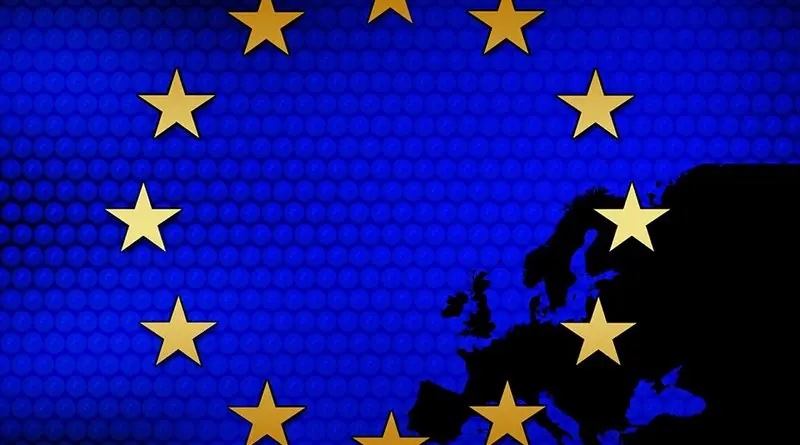Parliament Committee Adopts Act ‘To Build Up A European Data Economy’
By EurActiv
By Luca Bertuzzi
(EurActiv) — The legislative proposal that will define data governance rules for industrial data across the EU received the green light in the relevant European Parliament committee on Friday (16 July).
The committee on industry, research and energy adopted the report on the Data Governance Act (DGA), the first legislative building block of the European Commission’s data strategy presented last year. The final parliamentary vote is expected at the plenary session in September.
“We want to build up a European data economy. The personal data revolution was made by Facebook, Google and others. But Europe has a really strong industrial base, hence making industrial data available for commercial purposes is very important,” Angelika Niebler, the Parliament’s lead negotiator on the proposal, told EURACTIV.
Mentioning a recent study from the industry association BDI, Niebler noted that 90% of German SMEs are reluctant to share data as they fear unauthorised access. The DGA intends to unleash the untapped potential of data sharing in Europe by providing trusted data exchanges and legal certainty.
Data governance
For VOLT MEP Damian Boeselager, the DGA “is essential for the future of the data economy because it provides an ex-ante structure for data sharing markets. The key issue here is to effectively connect the data that exists in many companies, public authorities and research bodies with those who can use such data for business, sciences or other purposes”.
The new regulation will provide for the reuse of public sector data, protected either by intellectual property rights or by commercial confidentiality obligations. Public data will need to be anonymised before it is shared. For sensitive data shared with a third country, public institutions will be responsible for ensuring an adequate level of data protection is maintained.
The DGA also introduces the concept of ‘data altruism’, which enables individuals and organisations that collect data purely for reasons of public interest to donate their data, for instance for medical research. Such an organisation will be able to register at the EU level as a Recognised Data Altruism organisation.
“By establishing this governance framework, it should facilitate data sharing in particular for SMEs, as they would have easy access without having to fear that they are not complying with EU rules or exchange platforms using the shared data for their own benefit,” Niebler added.
Data intermediaries
The DGA also formalises the role of data intermediation service providers, a market that is still emerging in the EU, with the notable exceptions of Denmark and Finland, where these services are already advanced.
“A key component of the DGA is the clear rules for intermediaries, which will help to create fair and interoperable markets where players of all sizes have a chance to flourish. This is essential to unlocking innovation in the data economy, especially by European SMEs,” Finnish lawmaker Miapetra Kumpula-Natri told EURACTIV.
The core principle is that data intermediaries will have to ensure neutrality when they offer their services, as they will not be able to use the data for their own interest or for business services other than the ones that were agreed upon.
“Re-use of data and access to data should not become the monopoly of a few, therefore access should not be exclusive to any actor unless strictly necessary,” said Karen Melchior, opinion rapporteur for the Parliament’s Legal Affairs committee.
The DGA also introduces a ‘soft’ certification system for data intermediaries, based on which the relevant public authority will verify compliance in advance, ensuring legal clarity and easy access to data marketplaces. The competent authority is to be defined under national law.
Common standards
The original version of the DGA had established the European Data Innovation Board to oversee implementation. EU lawmakers have introduced the Data Innovation Advisory Council, a subgroup with representatives from academia, research, industry, and civil society.
Shadow rapporteur Nicola Danti noted that “one of the main objectives of the Board will be working towards increasing interoperability and creating common standards to avoid the fragmentation of the internal market, as well as fostering the creation of Common European Data Spaces”.
The advisory group will contribute to finding shared positions on issues of standardisation and interoperability.
“This is the European way to proceed. Politics gives the framework but the technical implementation needs coordination. We should find a common understanding on how we should move forward, where we need a technical or legal framework for standard-setting,” Niebler added.
Upcoming negotiations
The EU Council representing the 27 member states is currently defining its position ahead of interinstitutional negotiations between the Parliament and the Council.
Niebler, who will lead the negotiations from the Parliament’s side, warned that she would not accept a final compromise that would make the legal framework too complicated for small and medium-sized firms to operate in the data economy.
Sources involved in the DGA consider the file relatively unproblematic compared to the Data Act the Commission is due to announce later this year, which is set to regulate the contentious issue of data ownership.

